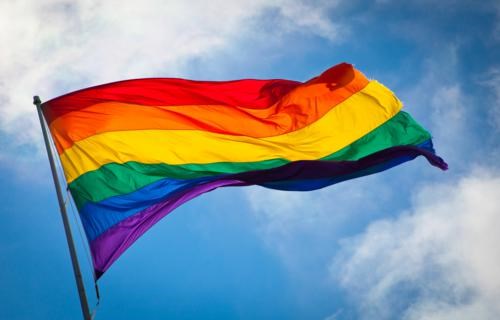Will the World Cup 2018 be truly LGBT friendly?
This June the FIFA World Cup takes place in Russia, welcoming millions of football fans from all over the world. Among them, there will be also visitors part of the LGBTQ community. But, will they also be welcomed?
The Football Supporters´ Federation (FSF) recently issued a guide called `England Fans´ Guide to Russia`, containing suggestions for the LGBTQ football fans on how to behave during the World Cup 2018. According to FSF, “certain things must be treated with caution” because Russia does not provide any law against discrimination based on sexual orientation.
“There is no reason not to come to the World Cup if you are LGBT+. However, although same-sex sexual activity has been decriminalised in Russia since 1993, it is strongly understood and advised that you do not publicly display your sexuality, but this is up to the individual,” says the guide, which can be downloaded on the FSF website.
“Unfortunately, the issue of LGBT+ rights has appeared a topic of taboo to the authorities ahead of Russia 2018, unlike before the 2014 Winter Olympics in Sochi, when Russian President Vladimir Putin said that gay people would be welcome in Sochi,” the guide says.
A similar guide will be also published by Football Against Racism in Europe (Fare), warning LGBTQ soccer fans to not show acts of public affection during the game because it could be dangerous for their safety.
“If you have gay fans walking down the street holding hands, will they face danger in doing so — that depends on which city they are in and the time of day,” said Fare's executive director, Piara Powar, to the New York Times in November 2017.
Concerns in spite of assurances
While Russia is not known for being a very tolerate place for LGBTQ people, Russian authorities have tried to assure the world that it will not be a problem at this year’s tournament.
“Gay people and minorities will feel safe and comfortable at this summer's World Cup in Russia,” said Alexei Smertin, the FIFA anti-discrimination officer, in an interview with the BBC this March. But in spite of assurances; there are still many concerns regards LGBTQ travelers´ protection while in Russia.
According to Alexander Agapov, the chief of the Russian LGBTQ Sport Federation, during the whole duration of the World Cup the LGBTQ visitors should expect a quite tolerant environment. Nevertheless, after the end of the event, the situation will return to normal, which for Russia means intolerance towards homosexuality, said Agapov to The Independent.
“By emphasising the safety of foreign LGBTQ fans, authorities have managed to present homosexuality as something foreign, un-Russian,” he said. “Clearly, they will do everything to make sure the World Cup passes trouble-free, but when it does the discrimination, the homophobia, and the laws will remain.”
‘Discriminatory’ law
During the 2014 Winter Olympics, held in Sochi, the LGBTQ community organised protests against Russian discriminatory laws towards homosexuality in 19 cities around the globe. The reason was the introduction of a law passed by the Russian Parliament in 2013, banning any form of promotion of homosexuality among people under 18. On that occasion, the President Vladimir Putin commented: “We don't have a ban on non-traditional sexual relations. We have a ban on the propaganda of homosexuality and paedophilia”. He also added that LGBTQ people were welcome in Sochi for the Olympics.
Last year, this law was labelled as discriminatory and encouraging of homophobia by the European Court of Human Rights (ECHR), in a judgment of a case involving three gay rights activists who opposed the legislation.
“The Court finds that the legal provisions in question do not serve to advance the legitimate aim of the protection of morals, and that such measures are likely to be counterproductive in achieving the declared legitimate aims of the protection of health and the protection of rights of others,” the ECHR´s judgment said.
For the 2018 World Cup, FIFA and the Local Organising Committee developed several measures in order to prevent and punish any form of discrimination. One of them is the establishment of three trained anti-discrimination match observers with the task of monitoring fans behavior during the 64 matches.
“Their observations will support the security disposition in the stadium and facilitate the investigations of FIFA’s disciplinary bodies through the provision of evidence of discriminatory incidents,” it is stated in the `Diversity and Anti-Discrimination at FIFA´ document.
This year Russia ranked 45th out of 49 European countries for LGBTQ rights protection in the ILGA-Europe index, rising three places in respect to 2017.
More Information






